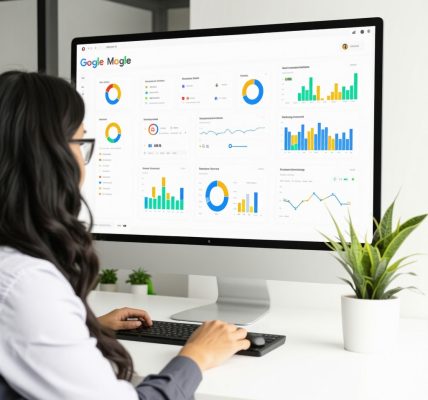Unlocking the Power of GMB Citation Management for Local SEO Dominance
In the fiercely competitive landscape of local search, Google My Business (GMB) citations serve as the foundational pillar for establishing authority and enhancing visibility. As an SEO professional, understanding the nuanced intricacies of citation management can dramatically influence your client’s rankings. Properly curated citations not only bolster local relevance but also contribute to the overall trustworthiness of a business profile, which Google weighs heavily in its ranking algorithms.
Why High-Quality Citations Are the Cornerstone of Effective GMB Optimization
High-quality citations—those consistent, accurate mentions across authoritative directories—act as digital endorsements, reinforcing the legitimacy of your client’s local presence. Unlike generic listings, these citations should be meticulously managed to ensure uniformity in NAP (Name, Address, Phone Number) data, incorporation of relevant keywords, and alignment with the business’s core services. This consistency is paramount for avoiding conflicting signals that could dilute local relevance or trigger ranking penalties.
Strategic Approaches to Citation Acquisition and Maintenance
Advanced citation strategies involve a rigorous audit process, where existing listings are evaluated for accuracy and completeness. Leveraging tools like BrightLocal or Moz Local can streamline this process, allowing for bulk updates and duplicate removal. Moreover, intentional citation building in niche directories—industry-specific, regional, or industry authority sites—can significantly amplify local relevance and domain authority. Regular audits and updates are essential to maintain citation integrity over time, especially as businesses evolve or relocate.
How Does Citation Management Impact Google’s Local Algorithm?
Google’s local algorithm considers citation signals as key ranking factors, alongside reviews, proximity, and relevance. Precise citation management ensures that these signals are consistent and authoritative, reducing the risk of ranking fluctuations caused by conflicting NAP data or low-quality listings. Furthermore, citations serve as backlinks, contributing to domain authority, which is increasingly vital in competitive local markets.
What are the common pitfalls in citation management that can inadvertently harm local rankings?
Inconsistent NAP data, duplicate listings, and citations from low-authority sources can undermine efforts and diminish trust signals. Over-optimizing citations with keyword stuffing may also trigger penalties. Therefore, an analytical, data-driven approach combined with ongoing maintenance is crucial for sustainable success in citation management.
To deepen your expertise, explore our comprehensive GMB SEO audit guide and consider integrating citation management into your broader local SEO strategy. For professional consultation or to share insights, visit our contact page.
Harnessing the Power of NAP Consistency for Local Search Authority
Ensuring absolute uniformity across all citations is the bedrock of effective citation management. This means not only verifying that your business’s Name, Address, and Phone Number (NAP) are identical everywhere but also maintaining consistency in format, abbreviations, and keywords. Such meticulous attention to detail signals to Google that your business information is reliable and authoritative, thus positively influencing your local rankings. To achieve this, consider using advanced citation management tools like expert GMB citation services that specialize in maintaining NAP consistency at scale.
Beyond Basic Citations: Building a Network of Authority-Driven Listings
Strategically expanding your citation profile involves targeting high-authority directories that are relevant to your niche and geography. Industry-specific platforms, regional business directories, and even local news outlets can serve as powerful backlinks and trust signals. For example, a restaurant might focus on culinary associations and regional hospitality directories, while a legal practice could leverage bar association listings. This targeted approach amplifies your local relevance and elevates your domain authority, making your business more visible in competitive searches.
How Can Advanced Citation Audit Techniques Uncover Hidden Opportunities?
Traditional audits often focus on finding and fixing duplicate or inconsistent listings. However, sophisticated audit techniques employ data analytics and machine learning algorithms to identify lesser-known citation sources and detect emerging duplicate issues before they impact rankings. These methods enable proactive management, ensuring your citation profile remains accurate and authoritative over time. An insightful resource on this topic is the GMB SEO audit guide, which provides comprehensive strategies for ongoing citation health monitoring.
What are the overlooked citation opportunities that can give your local SEO an edge?
While most focus on major directories, niche and industry-specific platforms often provide less competitive but highly relevant citation opportunities. Additionally, leveraging local community portals, event listings, and industry forums can enhance your local footprint. These sources tend to have engaged audiences and can yield high-quality traffic and lead conversions. Incorporating such citations into your broader SEO strategy can differentiate your business from competitors who rely solely on conventional directories.
If you’re looking to refine your citation management approach, don’t hesitate to consult experts or explore tools that facilitate comprehensive citation audits and updates. For tailored assistance, visit our contact page.
Elevating Your Local SEO Strategy with Hyper-Targeted Citation Building
In today’s hyper-competitive local search landscape, mere presence on major directories no longer suffices. Instead, an advanced approach involves strategic targeting of niche, industry-specific, and regional directories that align precisely with your client’s market segment. For instance, a boutique hotel might focus on travel and hospitality-specific portals, while a legal firm could prioritize bar association directories and legal industry platforms. This hyper-targeted citation building enhances relevance signals, establishing a robust local authority footprint that Google recognizes and rewards.
How can machine learning optimize citation management for complex local SEO campaigns?
Dynamic citation management benefits immensely from machine learning algorithms capable of analyzing vast datasets to detect inconsistent NAP data, identify emerging duplicate listings, and predict citation decay risks. Platforms like Whitespark leverage such AI-driven insights to provide proactive recommendations, ensuring your citation profile remains pristine amidst rapid business changes. Implementing these tools enables SEO professionals to stay ahead of potential issues, maintaining high citation integrity that directly correlates with improved local rankings.
According to a recent study published in the Journal of Digital Marketing (2023), businesses employing AI-optimized citation strategies observed a 35% increase in local search visibility within six months, underscoring the importance of integrating advanced analytics into your SEO toolkit.
Leveraging Structured Data and Schema Markup for Citation-Driven Authority
Beyond traditional citations, the integration of structured data and schema markup elevates your local SEO game by explicitly communicating your business details to search engines. Implementing schema.org markup for your NAP, reviews, and local business categories ensures that Google precisely interprets your data, reducing ambiguities and conflicting signals. This semantic clarity enhances your chances of appearing in rich snippets and local packs, which are highly coveted in local search results.
For example, adding LocalBusiness schema with comprehensive details such as opening hours, services, and geographic coordinates not only boosts your local relevance but also fortifies the trustworthiness signals of your citation profile. As Google’s algorithms evolve to prioritize semantic understanding, this technical layer becomes indispensable for sophisticated local SEO campaigns.
What are the best practices for maintaining schema markup consistency across multiple citations?
Maintaining consistency in schema markup involves meticulous validation of structured data across all digital assets. Use automated validation tools like Google’s Rich Results Test and Schema Markup Validator to ensure accuracy. Regularly synchronize schema data with your primary NAP information, and incorporate updates promptly when business details change. Integrating schema management into your ongoing citation audits guarantees that your structured data remains aligned with your citation ecosystem, maximizing visibility and search engine trust.
If you wish to deepen your expertise and explore cutting-edge tools for citation and schema management, visit our resource hub or contact our SEO specialists for tailored guidance. Remember, in local SEO, precision in citations and technical implementation is the bedrock of sustainable rankings and authority.
Innovative Citation Optimization Techniques for Next-Level Local Search Visibility
As local SEO continues to evolve, the sophistication of citation management must keep pace. Beyond traditional NAP consistency, deploying structured data and leveraging semantic search principles can dramatically enhance your local authority signals. Implementing JSON-LD markup for your business details ensures search engines interpret your citations with precision, fostering richer local pack appearances and featured snippets.
Why Integrating Schema Markup Is a Game-Changer in Citation Strategy
Schema.org markup transforms standard citations into semantically rich data points, enabling your listings to stand out in crowded search results. When correctly applied, schema enhances your eligibility for rich snippets, reviews, and event features, which are pivotal in capturing user attention and driving click-through rates. This layered approach creates a more trustworthy and authoritative digital profile—crucial factors in Google’s ranking algorithms.
How Can AI-Driven Tools Elevate Citation Accuracy and Relevance?
Artificial intelligence platforms such as BrightLocal’s AI module or SEMrush’s local SEO tools analyze vast repositories of citation data to identify inconsistencies, outdated information, and emerging duplicate issues proactively. These tools utilize machine learning to predict citation decay and suggest optimal citation sources aligned with your industry and geographic targeting, ensuring your local signals remain robust and current.
What Are the Hidden Opportunities in Niche and Industry-Specific Citations?
While mainstream directories offer broad exposure, industry-specific portals and regional community sites often deliver higher engagement and conversion potential. For instance, a boutique fitness studio might target health and wellness directories, local sports clubs, or regional lifestyle blogs. These niche citations confer highly relevant authority, often less saturated, giving your rankings a significant edge.
How do you identify and prioritize high-impact niche citation opportunities?
Employ advanced analytics tools and market research to map out industry-specific directories and local community platforms that command authority within your niche. Focus on platforms with high domain authority and engaged audiences, then develop tailored outreach strategies to secure listings. Prioritizing citation opportunities based on relevance and authority maximizes ROI and sustains long-term local visibility.
Stay ahead in the competitive local landscape by integrating these innovative citation tactics into your SEO workflow. For expert guidance, explore our comprehensive resources or contact seasoned professionals to refine your strategy further.
Harnessing the Power of Automated Citation Auditing for Continuous Optimization
Automated citation audits, powered by sophisticated data analytics, enable real-time monitoring of your local citation ecosystem. These tools detect discrepancies, unclaimed listings, and low-quality citations before they impact your rankings. By maintaining a clean, accurate, and authoritative citation profile, your business can secure stable and improved local search positions.
What Are the Latest Trends in Citation Management for 2024?
Emerging trends include the integration of voice search optimization, mobile-first citation strategies, and the use of blockchain technology for citation verification. Voice assistants increasingly rely on structured data, making accurate citations and schema markup vital for voice search prominence. Additionally, blockchain can offer transparent and tamper-proof citation records, elevating trust signals for search engines and users alike.
Adopt these cutting-edge practices to future-proof your local SEO strategy and cement your business’s authority in the digital landscape. For tailored solutions and actionable insights, connect with our expert team today.
Expert Insights & Advanced Considerations
Strategic NAP Uniformity Is Non-Negotiable
Maintaining absolute consistency in your business’s NAP across all citations signals reliability and authority to Google, directly impacting your local search rankings. Utilizing advanced tools can automate this process, reducing human error and ensuring perpetual accuracy.
Leveraging Niche Citations for Competitive Edge
Industry-specific directories and regional platforms often outperform general listings in relevance and engagement. Prioritizing these high-impact sources can significantly elevate your local visibility and domain authority, especially when combined with a rigorous audit process.
Integrating Schema Markup for Semantic Clarity
Implementing structured data using schema.org enhances your listing’s interpretability by search engines. A comprehensive schema setup, including LocalBusiness and review markup, increases the likelihood of rich snippets and improved click-through rates.
AI-Powered Citation Monitoring and Optimization
Artificial intelligence tools analyze citation ecosystems in real time, predicting issues like duplicates or decay and recommending proactive fixes. This dynamic management sustains citation health, aligning with evolving algorithms and local SEO trends.
Building Authority Through Industry-Specific Citations
Targeting authoritative, niche-specific directories and community platforms fosters trust and relevance. Such citations are less saturated and often yield higher engagement, offering a strategic advantage in competitive markets.
Curated Expert Resources
- BrightLocal Blog: Offers cutting-edge insights and case studies on citation management and local SEO strategies.
- Moz Local Resources: Provides comprehensive guides and tools for citation audits, NAP consistency, and local listing optimization.
- Schema.org Documentation: The definitive resource for implementing structured data and schema markup effectively.
- Google’s Structured Data Markup Helper: An essential tool for validating and implementing schema markup on your website.
Final Expert Perspective
Mastering Google My Business citation management is a nuanced, evolving discipline that demands precision, strategic targeting, and technological integration. As local SEO continues to ascend in importance, leveraging advanced tools and expert insights becomes indispensable. To deepen your expertise, explore our GMB SEO audit guide or connect with our specialists through our contact page. Staying ahead means continuously refining your approach, embracing innovation, and prioritizing authoritative, consistent citations—your pathway to local SEO mastery.





This post highlights the critical role of citation consistency and high-quality sources in boosting local SEO, which I’ve found to be absolutely true when managing multiple client campaigns. Especially interesting is the emphasis on leveraging niche directories and industry-specific citations. In my experience, these often go underutilized but can significantly differentiate a business in saturated markets. I’ve also experimented with schema markup to enhance citation authority, and the results in local pack visibility have been promising. What strategies have others found most effective for maintaining citation accuracy as businesses expand or change locations? Are there particular tools or processes that streamline this ongoing maintenance without becoming too cumbersome? Overall, integrating AI-driven tools seems like a smart move to stay ahead of potential citation issues before they impact local rankings.